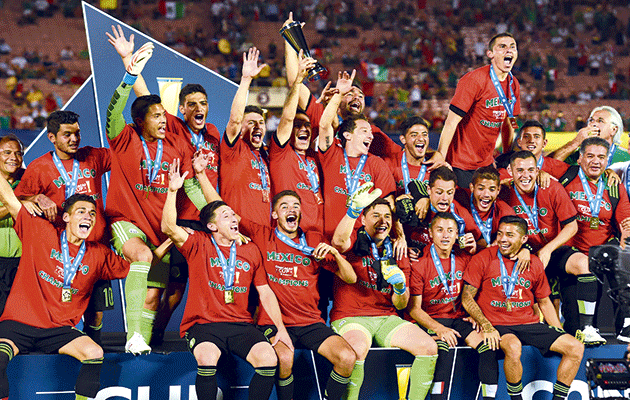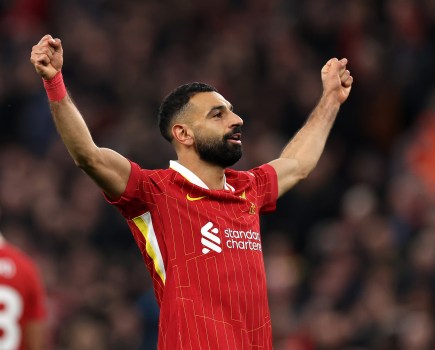On October 10, Mexico experienced one of its best football nights in recent years. In a dramatic match, defined by a stunning goal in extra-time, El Tri beat arch-rivals USA to qualify for the 2017 Confederations Cup in Russia. A few hours earlier, the under-23 side defeated Canada in the Olympic qualifying semi-finals to book their place in Rio de Janeiro, where they will defend the title they won in London.
Those results were a balm for a country that is constantly obsessed with its status in the region. Historically undisputed leaders for the past 20 years, Mexico fans have seen their northern neighbours constantly challenge their supremacy in CONCACAF of late.
Gold Cup winners in July and supported by a contingent of seven UEFA Champions League players, Mexico were considered the clear favourites against a US side going through a complicated generational change. However, in practice, the team arrived at the game surrounded by doubt.
Without a full-time coach after Miguel Herrera was sacked for punching a journalist following the Gold Cup victory, the Mexican FA had tried to find a quick replacement. But after being rejected by such high-profile candidates as Marcelo Bielsa, Jurgen Klopp and Jorge Sampaoli, they settle for the interim appointment of Ricardo “Tuca” Ferretti.
Born in Brazil, Ferretti has spent all his managerial career in the Mexican league. So, even though he once declaring that he would prefer to be a taxi driver rather than be in charge of the national side, the 61-year-old reluctantly accepted the position “out of gratitude to the country that had given him everything”. Despite being one of the most successful coaches on the domestic scene, his appointment sparked controversy, for its temporary condition, his defensive mindset and his well-known short temper.
Mexico arrived to the game in Pasadena with a six-game losing streak against the United States. Since Jurgen Klinsmann had taken charge of the US, El Tri’s record against them consisted of three defeats and three draws, and in the Mexican press there was a distinctive fear that the power balance in the region had shifted.
Those doubts were accentuated when Ferretti announced a 4-3-3 line-up that included three pure strikers in Javier Hernandez, Oribe Peralta and Raul Jimenez but no established defensive midfielder. In the past, the usual recipe of the United States against Mexico was to sit back, soak up the pressure and then launch counter-attacks to take advantage of the spaces left by El Tri. The line-up that was being sent out looked tailor-made for a new episode of the same story.
However, from the first minute, it was that Ferretti knew what he was doing. The high Mexican forward line and their relentless pressing frustrated the Americans, who never felt comfortable with the ball. Mexico therefore assumed control of the game and the host’s feared counter-attacks almost never came.
Nevertheless, El Tri struggled to reflect their dominance on the scoreboard. Mexico went ahead in the 10th minute after a combination between the three strikers was finished off by Hernandez. However, Geoff Cameron equalised just four minutes later after a mistake by the Mexican defence following a free-kick from Michael Bradley.
From then on, Mexico dominated without being able to score and then game went into extra time. Oribe Peralta appeared to settled the matters for the visitors in the 96th minute, but another mistake in the Mexican defence allowed the US to equalise again, with 12 minutes to play.
Remaining calm and saving the best for last, there were only three minutes left when Mexico right-back Paul Aguilar picked up a loose high ball in the American box and won the game with spectacular first-time volley.
The victory to decide who represented CONCACAF at the Confederations Cup was made all the sweeter by the under-23 side’s 2-0 win against Canada. They went on to beat Honduras in the Final, while the US will have to beat Colombia in a play-off if they are to join El Tri and Honduras in Rio.
Nevertheless, even in the best times, Mexico football is never far from controversy. A few days after beating the United States, Ferretti finished his internship and the Mexican FA announced little-known Colombian coach Juan Carlos Osorio as his replacement. Most of the Mexican press, who had been expecting a high-profile candidate, reacted with displeasure at the news, and will almost certainly analyse every one of his decisions with a microscope.
Interesting times, as ever lie ahead for the Mexican game.
By Martin Del Palacio Langer







